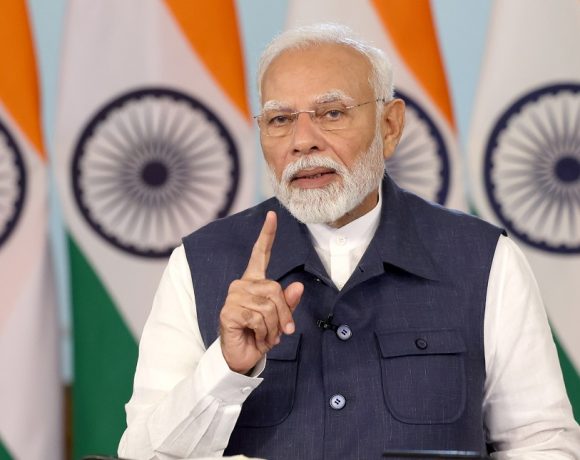
India Thwarts Pakistani Missile, Drone Attacks
In a significant escalation of hostilities, India has successfully thwarted a wave of missile and drone attacks launched by Pakistan targeting multiple Indian cities. According to officials, Indian air defense systems neutralized eight missiles and several drones that were aimed at key military installations in Jammu, Pathankot, and Udhampur.
The coordinated attacks caused blackouts in cities such as Amritsar, Jalandhar, Hoshiarpur, Mohali, and Chandigarh. Power was also disrupted in Jammu and Pathankot, both of which are home to major military bases. An Indian Premier League match in Dharamshala, approximately 80 kilometers from the Pathankot Air Force Station, had to be cancelled due to the escalating threat. While electricity was later restored in most cities, the incident marked one of the most aggressive cross-border attempts in recent years.
India Pakistan Conflict Escalates
“All eight missiles were intercepted and neutralised by our missile defence systems. Additionally, drones were successfully targeted mid-air before they could inflict any damage.” These words from Indian defense officials highlight the preparedness and agility of Indian forces in responding to cross-border threats.
In retaliation, India launched a precision military campaign termed “Operation Sindoor,” targeting known terrorist strongholds deep within Pakistan, including Bahawalpur, Lahore, and Muridke. The operation reportedly resulted in the elimination of more than 100 militants affiliated with terror outfits responsible for recent violence in Jammu and Kashmir.
Missile Drone Attacks Intercepted
India’s deployment of the S-400 missile defense system, locally known as “Sudarshan Chakra,” played a pivotal role in intercepting and neutralizing over 80% of hostile threats. The air defense network proved especially effective against UAVs and ballistic threats directed at 15 Indian cities. This marks the first combat deployment of the S-400 in India’s operational history and is seen as a strong message of deterrence.
The attacks came after India struck key terror infrastructure inside Pakistan as part of its intensified campaign against cross-border terrorism. Indian intelligence had previously warned of potential retaliatory strikes from Pakistan following these actions.
Operation Sindoor and Strategic Messaging
India’s rapid and coordinated response signals a strategic shift from covert retaliation to overt military deterrence. “Operation Sindoor” is seen as not just a countermeasure but a clear warning against continued provocation.
On the diplomatic front, External Affairs Minister S. Jaishankar held discussions with leaders from the United States, European Union, Iran, and Saudi Arabia. India has maintained that while it does not seek escalation, it will not tolerate any threats to its sovereignty and will respond with decisive force.
Civilian casualties were reported on both sides. India mourns the loss of 16 civilians due to Pakistani shelling, while Pakistan claims 31 fatalities from Indian precision strikes. The conflict has led to suspension of commercial flights over northern regions and affected daily civilian life.
As regional tensions rise, India remains firm in its objective—to secure national borders and neutralize terror threats. The situation continues to be closely monitored with the hope that diplomatic channels will prevail over continued military confrontation.


















